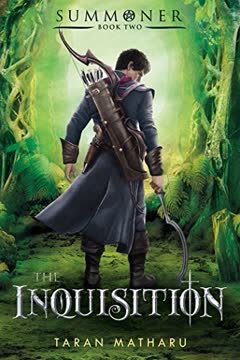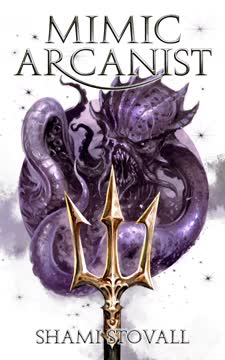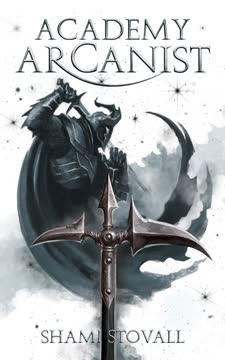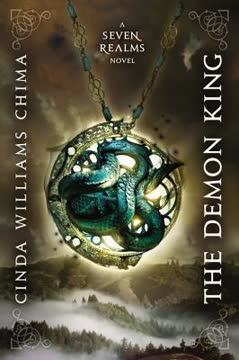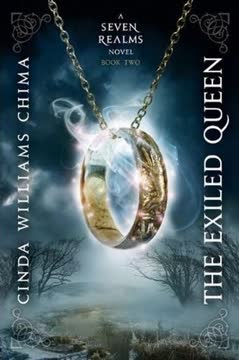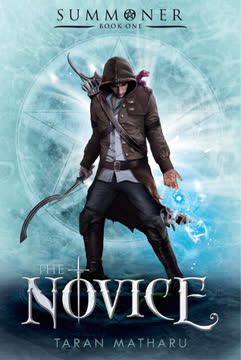Plot Summary
Prison Shadows and Old Enemies
Fletcher languishes in a windowless cell, marking the days of his imprisonment with notches on the wall. His only solace is his demon companion, Ignatius, and two secret books—one on spellcraft, the other a journal of orcish lore. The monotony is broken when Didric, his old nemesis, appears as his jailer, now a summoner himself due to Fletcher's past attack. Didric's cruelty is matched by his newfound power and status, and he delights in tormenting Fletcher, who is to be put on trial at last. The cell's silence is pierced by memories of friends and the world outside, and Fletcher's hope flickers as he's led from darkness into the uncertain light of judgment.
The Trial's Cruel Stage
Dragged before a biased judge and a hostile crowd, Fletcher faces a trial orchestrated by Didric and his allies. The prosecution's witnesses, Calista and Jakov, spin a tale of Fletcher as a would-be murderer, while Arcturus, Fletcher's mentor, mounts a defense that exposes inconsistencies and the lack of evidence. The trial is a spectacle, with the crowd's mood swinging between outrage and doubt. Fletcher's past, his friendships, and the political machinations of the Triumvirate—Didric, Forsyth, and Faversham—are all weaponized against him. Yet, through Arcturus's cunning, the truth of Fletcher's self-defense emerges, and the judge, after tense deliberation, finds him innocent.
Friends, Betrayals, and Verdicts
Fletcher's relief is short-lived. As the crowd erupts, Inquisitor Rook interrupts, charging Fletcher with high treason for his role in a dwarven rebellion. The courtroom becomes a stage for deeper political games, and Fletcher is swept from one cell to another, his fate now in the hands of the Inquisition. Old friends and new betrayals swirl around him—Othello, his dwarven friend, is also accused, and the Triumvirate's grip tightens. The sense of victory is replaced by dread, as Fletcher realizes he is a pawn in a much larger conflict, and the cost of his freedom may be the lives of those he loves.
Treason's New Chains
In a rare moment of comfort, Fletcher is reunited with his adoptive father, Berdon, and Othello's family. The warmth of their reunion is shadowed by the looming trial for treason, orchestrated by the Triumvirate and the Inquisition. The charges are grave, the evidence damning, and the threat of execution hangs over Fletcher and Othello. Yet, in the face of despair, their bonds of friendship and family are reaffirmed. Arcturus, ever the strategist, prepares their defense, but the machinery of power seems unstoppable. The chapter is a meditation on loyalty, sacrifice, and the resilience of hope in the darkest of times.
The Inquisition's Game
The trial for treason is a farce, with the Inquisition acting as both prosecutor and judge. Evidence is twisted, witnesses are coerced, and the jury is stacked against Fletcher and Othello. The courtroom becomes a theater of cruelty, as Othello is humiliated and the dwarves' rights are trampled. Captain Lovett's dramatic entrance offers a glimmer of hope, as she testifies to Fletcher and Othello's innocence, but her words are dismissed. The machinery of injustice grinds on, and the friends are left to contemplate their impending deaths, the futility of resistance, and the cost of standing against a corrupt system.
The Dwarven Dilemma
In the aftermath of the trial, Uhtred, Othello's father, contemplates rebellion, ready to risk civil war to save his son. Fletcher, ever the voice of reason, pleads for restraint, knowing the consequences would be catastrophic. The unexpected arrival of King Harold brings a revelation: the true power lies not with the king, but with his father, Alfric, and the Triumvirate. Harold confides his own impotence and the precarious balance of peace. He offers Fletcher a terrible choice—confess to treason and die, or risk the destruction of the fragile alliance between humans, dwarves, and elves. The chapter is a study in political powerlessness and the burden of leadership.
Sacrifice and Confession
Fletcher, resolved to prevent bloodshed, confesses to the crime, exonerating Othello and ensuring his own execution. The courtroom is stunned, and the jury, moved by his sacrifice, spares Othello. The emotional farewell between the friends is heart-wrenching, as Fletcher faces death with dignity. Yet, the machinery of power is not done with him. Sir Caulder, the old weapons master, interrupts the proceedings with a tale of Fletcher's mysterious origins, casting doubt on his common birth and hinting at a noble heritage. The chapter is a meditation on sacrifice, identity, and the unpredictable turns of fate.
Heritage and the Manticore's Sting
Sir Caulder's story is met with skepticism, but King Harold, moved by the possibility, offers Fletcher a chance to prove his noble blood through a deadly test—surviving the sting of a Manticore, a feat only possible for a true Raleigh. The courtroom holds its breath as Fletcher is stung and collapses, teetering on the edge of death. He awakens in the elven lands, saved by their medicine, and learns the truth of his heritage. Fletcher is the lost heir of the Raleighs, his past a tapestry of tragedy and survival. The chapter is a rebirth, as Fletcher claims his place in the world and the responsibilities that come with it.
The Elven Sanctuary
In the Great Forest, Fletcher recovers under the care of Sylva and the elves. The beauty and tranquility of the elven lands offer a stark contrast to the brutality he has endured. Here, he learns of his parents' legacy, the history of the Raleighs, and the interconnectedness of the three races. King Harold arrives, bestowing upon Fletcher his inheritance and a new demon, Athena the Gryphowl. The chapter is a moment of peace and reflection, as Fletcher comes to terms with his identity, his losses, and the new alliances that will shape the future.
Council of Three Races
A council of humans, dwarves, and elves convenes to address the looming threat of the orcs and the internal divisions threatening Hominum. The discovery of goblin eggs and the need for unity lead to a bold plan: a joint mission behind enemy lines to destroy the eggs and rescue a lost noblewoman. Fletcher, Sylva, and Othello are chosen as leaders, their teams a symbol of the alliance. The chapter is a turning point, as old enmities are set aside in the face of a greater danger, and the fate of the empire rests on the shoulders of its youngest heroes.
The Mission's Chosen
At Vocans, the teams are assembled, each sponsored by powerful figures with their own agendas. The selection is fraught with rivalry, suspicion, and the lingering wounds of past betrayals. New weapons, spells, and allies are introduced, and the students are trained for the perils ahead. The mission is as much about winning hearts and minds as it is about military success, and the eyes of the empire are upon them. The chapter is a study in camaraderie, competition, and the heavy burden of representing an entire people.
Jungle Lessons and Allies
The teams journey into the jungle, learning to survive in the hostile environment with the help of guides and new spells. Old suspicions resurface as sabotage and assassination attempts threaten to tear the group apart. Fletcher's act of kindness towards a gremlin earns him an unexpected ally, while the dangers of the jungle—both natural and supernatural—test the limits of their endurance and trust. The chapter is a meditation on the thin line between friend and foe, and the importance of compassion in a world at war.
Gremlin's Debt and the Warren
Captured by gremlins, Fletcher and his team are saved by Blue, the gremlin he once rescued. Led into the Warren, they discover a hidden society, ruled by the ancient orc shaman known as Mother. Here, the truth of the orcs' brutality and the gremlins' suffering is laid bare. Mother, herself a victim of the orc's cruelty, reveals the history of the pyramid, the prophecy of the albino orc, and the cycle of violence that binds their fates. The chapter is a journey into the heart of darkness, and a reminder that even the smallest kindness can change the course of history.
The Orc Shaman's Truth
Mother's tale is one of loss, survival, and the hope for a better future. She reveals the orcs' use of gremlins as fodder for their armies, the prophecy of the albino orc, and the role of summoners in the coming war. The alliance with the gremlins is sealed, and Fletcher's team is guided to the pyramid, where the final confrontation awaits. The chapter is a meditation on the nature of power, the weight of prophecy, and the possibility of breaking the cycle of hatred through understanding and alliance.
The Pyramid's Bloody Secret
Within the pyramid, Fletcher's team witnesses a gruesome ritual as the albino orc, Khan, and his shamans use the blood of sacrifices to fertilize the goblin eggs and open a portal to the ether. The orc keys—long sought by Hominum—are revealed, offering the promise of new power. The team's discovery is a triumph, but it comes at a cost, as the true scale of the orc threat and the depth of their magic is laid bare. The chapter is a turning point, as knowledge becomes both a weapon and a burden.
The Goblin Egg Raid
The teams launch their assault on the goblin eggs, racing against time and the awakening of the goblin horde. Amidst the chaos, Fletcher and Mason rescue Lady Cavendish and the surviving slaves, while the others battle to destroy as many eggs as possible. The cost is high—mana is depleted, friends are wounded, and the enemy is relentless. The chapter is a whirlwind of action, sacrifice, and the desperate hope that their efforts will be enough to turn the tide of war.
Betrayal in the Shadows
As the teams retreat, Jeffrey, long thought a friend, reveals himself as the true traitor, paralyzing Fletcher and his companions with poison darts. His confession exposes the depth of the Triumvirate's conspiracy and the ease with which hatred can be sown. In a final act of defiance, Fletcher kills Jeffrey and seals the passage, but the team is trapped, surrounded by enemies and with no hope of rescue. The chapter is a meditation on trust, betrayal, and the resilience of the human spirit in the face of overwhelming odds.
Last Stand and Escape
Trapped and paralyzed, the team faces death as the orcs break through. In a moment of inspiration, Fletcher realizes the yellow petals are the key to surviving the ether, and the pentacle in the chamber offers a way out. As the orcs close in, the team consumes the petals, activates the portal, and escapes into the ether, leaving behind the world they knew. In the final moments, Fletcher recognizes Lady Cavendish as his mother, and the story ends with a leap into the unknown, the promise of new beginnings, and the hope that sacrifice and courage can change the world.
Characters
Fletcher Wulf
Fletcher is the emotional and moral center of the story—a young man shaped by loss, injustice, and the search for belonging. His journey from imprisoned outcast to noble heir is marked by resilience, compassion, and a willingness to sacrifice for others. Fletcher's relationships—with Ignatius, Othello, Sylva, and Berdon—reveal his deep need for connection and his capacity for forgiveness. Psychologically, Fletcher is driven by a fear of abandonment and a desire to prove his worth, but he grows into a leader who values unity over vengeance. His development is a testament to the power of empathy and the courage to do what is right, even at great personal cost.
Ignatius
Ignatius, Fletcher's Salamander demon, is more than a magical ally—he is a reflection of Fletcher's own spirit: fiery, protective, and playful. Their bond is both emotional and psychic, providing comfort in isolation and strength in battle. Ignatius's willingness to risk himself for Fletcher, and his role in key moments of survival and victory, symbolize the importance of trust and the deep connections that transcend species and language. Psychologically, Ignatius represents Fletcher's inner fire and the hope that endures even in the darkest times.
Othello Thorsager
Othello is Fletcher's closest friend and a symbol of the struggle for dwarven rights and dignity. His journey is one of loyalty, sacrifice, and the pain of prejudice. Othello's relationship with his family, especially his father Uhtred, is fraught with the tension between rebellion and peace. Psychologically, Othello is torn between anger at injustice and the desire for reconciliation, and his friendship with Fletcher is both a source of strength and vulnerability. His development highlights the costs of bigotry and the necessity of solidarity across divides.
Sylva
Sylva is both a bridge and a barrier between worlds—a high elf who seeks peace but is marked by the wounds of war and betrayal. Her relationship with Fletcher is complex, oscillating between friendship, rivalry, and unspoken affection. Sylva's psychological landscape is shaped by trauma, pride, and the burden of representing her people. Her moments of vulnerability and strength reveal the challenges of leadership and the difficulty of trust in a world scarred by conflict. Sylva's arc is one of healing, both personal and political.
Didric Cavell
Didric is the embodiment of privilege corrupted by pain and resentment. Scarred by Fletcher's actions and empowered by new abilities, he becomes a symbol of the dangers of unchecked power and the cycle of vengeance. Didric's psychological makeup is a toxic mix of inferiority, entitlement, and a desperate need for validation. His relationship with Fletcher is a mirror of the larger conflicts in Hominum—personal grievances magnified into political vendettas. Didric's development is a cautionary tale of what happens when hate is allowed to fester.
Arcturus
Arcturus is the wise, battle-scarred guide who shepherds Fletcher through trials both literal and figurative. His own history as an outsider and his complex relationship with the Faversham family inform his empathy and his tactical brilliance. Psychologically, Arcturus is marked by regret, a longing for redemption, and a fierce protectiveness toward his charges. His development is one of acceptance—of his past, his limitations, and the necessity of passing the torch to a new generation.
King Harold
King Harold is a study in the burdens of leadership without power. Trapped between his father's tyranny and his own ideals, he is forced to make impossible choices. His relationship with Fletcher is one of mutual recognition—both are heirs to legacies they did not choose, and both must navigate the treacherous waters of politics and loyalty. Psychologically, Harold is defined by frustration, guilt, and a quiet courage that manifests in moments of vulnerability and candor.
Uhtred Thorsager
Uhtred is a figure of authority and paternal love, but also of rage and despair. His willingness to contemplate rebellion, and his ultimate restraint, reflect the psychological toll of oppression and the difficulty of choosing between justice and survival. Uhtred's relationship with Othello and Fletcher is marked by pride, disappointment, and a deep, if sometimes misguided, love. His development is a meditation on the costs of leadership and the dangers of desperation.
Jeffrey
Jeffrey is the story's most insidious villain—a seemingly harmless ally who is, in truth, a fanatic driven by hatred and a twisted sense of patriotism. His betrayal is a psychological gut-punch, revealing the ease with which prejudice can be masked and the devastating consequences of ideological extremism. Jeffrey's development is a warning about the dangers of zealotry and the importance of vigilance against the enemies within.
Blue
Blue is the most unlikely of heroes—a gremlin saved by Fletcher's compassion, who repays the debt by saving the team and forging an alliance between species. Blue's journey is one of survival, gratitude, and the breaking of cycles of violence. Psychologically, Blue represents the power of empathy to transcend boundaries and the hope that even the smallest act of kindness can change the world.
Plot Devices
Political Intrigue and Power Struggles
The narrative is driven by the machinations of the Triumvirate, the Inquisition, and the powerless King Harold. Trials are rigged, evidence is fabricated, and the machinery of power is wielded to crush dissent and maintain the status quo. The shifting alliances between humans, dwarves, and elves are both a source of hope and a constant threat, as old wounds and new betrayals threaten to unravel the fragile peace. The structure of the story—alternating between courtroom drama, political negotiation, and action—mirrors the instability of the world and the precariousness of justice.
Foreshadowing and Prophecy
Fletcher's infusion dreams, the prophecy of the albino orc, and the ancient hieroglyphs all serve to foreshadow the coming conflict and the roles the characters will play. The use of prophecy is both a narrative device and a psychological burden, as characters struggle to reconcile their desires with the destinies imposed upon them. The tension between fate and free will is a recurring theme, and the story's structure—moving inexorably toward the raid on the goblin eggs—reflects the sense of inevitability that haunts the characters.
Betrayal and Hidden Motives
The story is replete with betrayals, both personal and political. Friends become enemies, and enemies become allies, as the true motives of characters are revealed. The use of hidden traitors—most notably Jeffrey—serves to keep the reader off-balance and underscores the dangers of complacency. The narrative structure, with its frequent reversals and revelations, mirrors the psychological uncertainty of the characters and the world they inhabit.
Symbolism and Thematic Resonance
The goblin eggs are a potent symbol of the orc threat, the cycle of violence, and the potential for both creation and destruction. The pentacle, used for summoning and as a key to the ether, represents the intersection of power, knowledge, and sacrifice. The recurring motifs of imprisonment, sacrifice, and rebirth echo throughout the story, reinforcing the themes of transformation, the cost of peace, and the hope for a better future.
Analysis
Taran Matharu's The Inquisition is a masterful exploration of power, prejudice, and the possibility of unity in a fractured world. At its heart, the novel is a coming-of-age story—Fletcher's journey from orphaned outcast to noble leader mirrors the larger struggle of Hominum to move beyond cycles of hatred and violence. The book's structure—alternating between courtroom drama, political intrigue, and high-stakes adventure—serves to highlight the interconnectedness of personal and political transformation. The psychological depth of the characters, particularly Fletcher, Othello, and Sylva, grounds the fantastical elements in real emotion and moral complexity. The novel's use of betrayal, prophecy, and sacrifice underscores the dangers of fanaticism and the necessity of empathy. Ultimately, The Inquisition is a call to action: a reminder that the smallest acts of kindness can change the world, that unity is possible even in the face of overwhelming odds, and that the true test of character is not in victory, but in the willingness to stand together against injustice.
Last updated:
Review Summary
The Inquisition received mostly positive reviews, with readers praising its fast-paced plot, character development, and world-building. Many found it more engaging than the first book, appreciating the expanded lore and new characters. Reviewers enjoyed the trial scenes, jungle quest, and political intrigue. The demon companions were highlighted as a favorite aspect. Some criticized the simplistic writing and predictable twists. The cliffhanger ending left readers eager for the next installment. Overall, it was considered a strong sequel that improved upon the original.
Summoner Series
Similar Books
Download PDF
Download EPUB
.epub digital book format is ideal for reading ebooks on phones, tablets, and e-readers.
